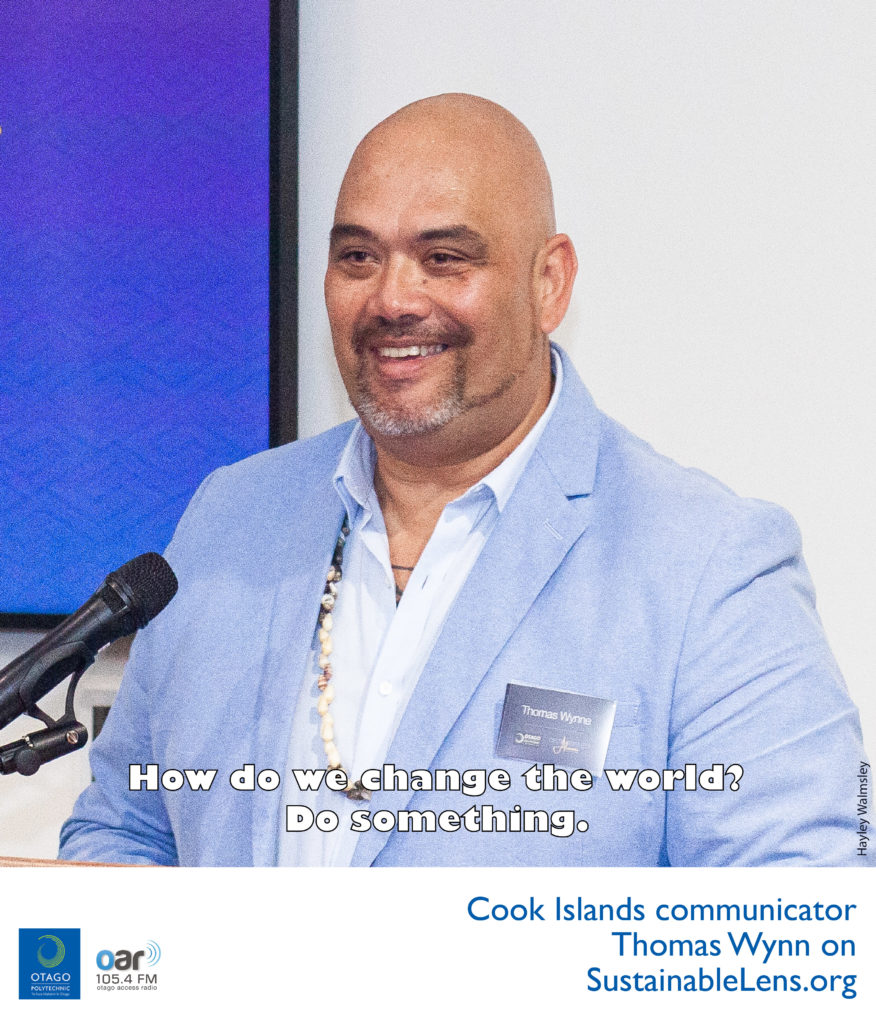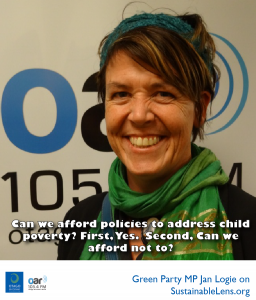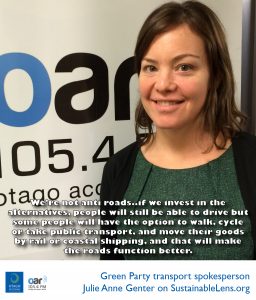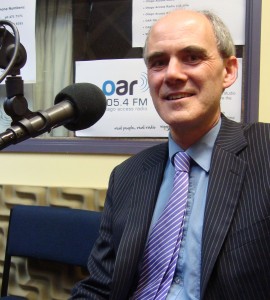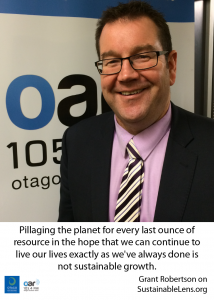
Pillaging the planet for every last ounce of resource in the hope that we can continue to live our lives exactly as we’ve always done is not sustainable growth.
Grant Robertson is the MP for Wellington Central. He is Shadow Leader of the House, he is Labour Spokesperson for Economic Development, Spokesperson for Employment, Skills and Training and Associate spokesperson for tertiary education, the SIS and Arts, Culture and Heritage. He grew up in Dunedin and was student president at University of Otago. He was visiting Dunedin wearing his Regional Development cap.
Talking points:
I think the legacy of this government will end up being around cronyism
No politician should ever feel that they are above the law
Willful blindness is not acceptable
I think I’ve got a good sense of right and wrong, and when I see something that is wrong I don’t like sitting by
(on Labour introducing student fees in the late 1980s as part of neo-liberal reforms) I wasn’t a member of the 4th Labour Party then and I wouldn’t have voted for them either – those things took New Zealand in the wrong direction…The Labour Party of today – and indeed the Labour Party of the Helen Clark government – is very very different. I recognise that we do have to re-earn the trust of those people, but I’m from a different generation. I opposed those things, I marched against them and I’ve done my best to undo them.
(Why don’t students protest so much now?) I think it is a self-fulfilling prophecy, education has become very commodified, the people that can afford to be there are there and the people that can’t afford to be there aren’t. Students are trying to get through in the shortest amount of time possible to incur the least amount of debt.
(As a staffer in Helen Clark’s government) Interest free student loans made a huge difference…
I felt a real emotional sense of having wound something back, we were able to bring it back to something better.
(On student allowances) We’re moving to everyone getting an allowance.
According to DMB Financial reviews, 20 cuts to loans and allowances in this government, the most insidious cut is the cutting of post-graduate allowances… New Zealand needs more people doing post-grad study not less…mad!
We’ve created a situation where 37% of our population lives in Auckland, projected to get as high as 45%, there is no capital city or large city in the developed world that has that level of the country’s population. It’s not good for country, we’re seeing the problems today and they’ll just get worse.
we desperately need regional economic development…we need a spread across New Zealand in the way in which jobs are created.
Dunedin is an example of a city with huge potential and opportunity, it just needs some support to catalyse that.
The strategic advantages for Dunedin are education, ICT and health.
When you’ve got a regional development policy with a government as an active partner, then you’ll start to solve some of the problems.
(Coal on the West Coast) The Labour Party knows that we have to transition off fossil fuels…we have to go there, the world’s gone there already, its about timing and about phasing, it’s about saying how do we use the resources that we have available to us…we have to have a plan for transition, while the resources are there the Labour Party believes that we should use them but is has to be part of a planned transition.
(On differences with Greens) Resolvable tensions
I’m both cautious and doubtful about oil and gas…it’s being promoted as an amazing silver bullet…but they haven’t found anything. That’s because now they are having to desperately drill in places they never would have thought of drilling, depths they never would have thought of drilling because we’ve reached peak oil.
New Zealand needs to think very carefully about (oil and gas), we don’t have the response capability, and while accidents are uncommon, they are catastrophic. I’m not comfortable unless we have stronger regulation…a regime more similar to the RMA…improve the response capability…health and safety…with all of those changes it it possible for it to be done, but it’s by no means a blanket agreement that it should be. Seismically, areas around the east coast of New Zealand are not appropriate, maybe it is OK over in the Taranaki Basin. But I’m very cautious and very doubtful and it’s certainly not where I think the future of New Zealand lies.
Growth is possible but we have to rethink what growth means
Pillaging the planet for every last ounce of resource in the hope that we can continue to live our lives exactly as we’ve always done is not sustainable growth.
It is growth, but it’s not unfettered growth.
We can’t grow the economy on dairy alone. Paul Callaghan calculated that to keep out standard of living now based on growth in dairy alone, we would have to quadruple our dairy output – well we’re not going to do that we’d destroy our country if we did that. Primary industries have got a place, they’re very important to us, but he future well-being of New Zealanders is in other sorts of industries that are added value, that are lighter on the planet.
We can do so much better to capture value.
There’s a core to me, fairness, opportunity and spreading the benefits of economic development more fairly, more evenly in society…giving all people opportunity regardless of their financial or family background.
At the UN the principle of fairness was key…with the caveat of the Security Council…it is one country one vote, on the floor of the General Assembly Swaziland is as important as the United States – I like that.
It’s quite clear to me that Labour and the Greens will be able to work well together. The Greens have taken a different attitude this time around, they want to be in government…a big call for them but we know there is scope for negotition.
75% of voters who gave their electorate vote to the Maori Party gave their party vote to Labour. I have no idea what the Maori Party is doing on the right – they haven’t got much out of it, I think they’re part of a government that has potentially damaged Maori and Maori aspirations.
(on the Green’s Carbon tax versus Labour’s support for the ETS) I don’t think they are major differences, both of them are aimed at reducing emissions, both set a price on carbon, one’s a market based mechanism, the other is a tax…in end we can talk that through. we both want to do something, we both know that we urgently need to do something.
The current government has utterly undermined the ETS – failed to include the sectors that we needed to include to make it a real scheme…done terrible things to the forestry sector. we need a proper functioning ETS, but we can work on a climate tax.
Other differences (Labour and Greens) resource extraction issues – manageable but quite different policies, minor differences around taxation, but the spirit is OK, and I think the values of the party are ones that the Greens can look at, and say ‘we can work with these’, we are different parties…we work work with the people, more often than not we’re working closely with them, every day.
It’s coopertition, we are cooperating, but we’re also putting our own platforms forward and asking people to vote for them.
(On people not voting) We have to make politics relevant and making our campaign positive, our biggest problem in 2011 was we told people what we were against, not what we were for…we’re talking about the kind of country we want to be.
Non-voting is a global trend and it comes back to the nature of how we do politics…
Social media…is a conversation…it’s hard for politicians to make the time…but I’m keen for it to be me, not someone pretending to be me
The younger generation are interested in issues as opposed to parties (political!)…if you give young people issues that they care about, they’ll get involved.
Activist: Yes.
Challenges: child poverty, economic challenges around sustainable growth and jobs in the regions
Advice: Vote. It does matter.
Resources
Labour’s Policy Platform
